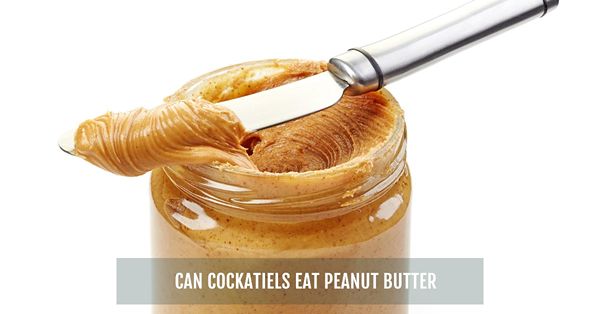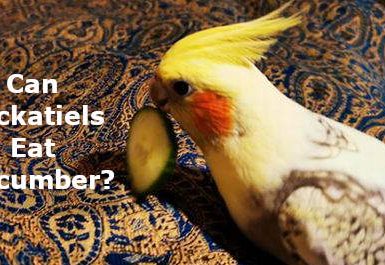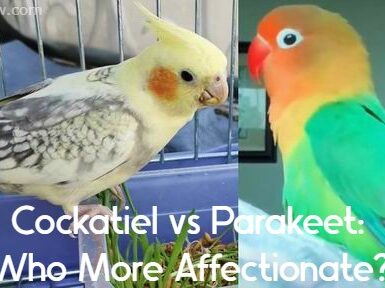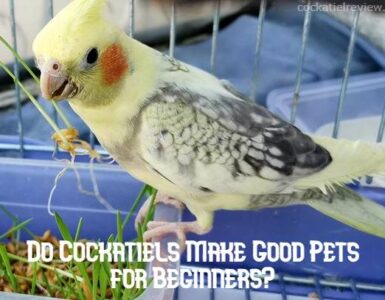
Feeding Peanut Butter to Cockatiels: Health Benefits and Risks
Peanut butter is the gateway to a healthy diet for those who don’t want to give up the flavours and essentials. This product is rich in protein, fatty acids, and minerals. Feeding peanut butter can be interesting, as cockatoos are exotic birds with a colourful plumage and unrivalled abilities.
However, like other bird food, peanut butter has adverse effects. There are several risks associated with feeding peanut butter to cockatoos. In some cases, peanut butter is so nutritious and smells so attractive that the bird may reject other types of food. In addition, the bird may be allergic to the product.
The following article will discuss the dangers and benefits of feeding peanut butter to cockatoos. We will clearly assess the product’s health benefits and the correct administration method.
Benefits of Peanut Butter for Parots
Rich in protein
Peanut butter is rich in protein, essential for cockatoo hatching and healthy growth. These proteins help protect the animal’s muscle tissue and support its immune system.
The key to good fat transfer
Peanut butter is also considered an excellent source of fat, which is essential for good digestion and calorie absorption in hummingbirds. Peanut butter also can help garlands maintain a healthy glow and skin.
Rich in antioxidants
Peanut butter contains antioxidants, including vitamin E, which protects animal cells from damage caused by free radicals. In addition, antioxidants help reduce the risk of severe diseases and keep cockatoos healthy.
Rich in protein and fatty acids
Peanut butter is considered an excellent source of protein and fatty acids. Peanut butter contains all the essential amino acids that help the body maintain normal cell and tissue function.
The abundance of fatty acids in peanut butter helps to improve cardiovascular function, skin and coat, and immunity. In addition, fatty acids help remove excess body weight and boost metabolism.
For chickens, peanut butter is also considered an important source of calories to keep the birds healthy and fully developed. However, as with all birds, it is essential not to consume too much fat to avoid health problems.
Risks of using peanut oil on papaya
Allergic reactions. Peanut butter can cause allergies to some flowers. Signs of an allergic reaction include itching, rash, swelling, abdominal pain, difficulty breathing, and anaphylactic reactions. Before feeding peanut butter to chickens, consult your veterinarian to find out if they are allergic.
High fat content. Peanut butter is high in fat and calories, which can lead to obesity and overweight. Therefore, it is important to control the amount of peanut butter in your pet’s diet.
Indigestion; cholera does not have enough enzymes to digest fats, including peanut butter. Excessive consumption can cause intestinal problems such as diarrhea, vomiting, and loss of appetite.
Like all papagotes, cholera requires a balanced diet. Absorption of products high in fatty acids can impair the bird’s welfare.
Peanut butter, which contains the highest amount of fatty acids, is not fully absorbed by the bird and can accumulate in the animal’s body. This can lead to obesity and have negative effects on the bird’s welfare, including indigestion and elevated blood cholesterol levels.
Peanut oil can also cause allergic reactions in some birds, leading to serious health problems and even death. Therefore, when adding peanut oil to a coconut bird’s diet, any risks associated with this product should be considered.
It is important to remember that coconut diets must be balanced with all types of foods and adapted to the age and needs of the bird. For the health of your bird, it is recommended that you consult your veterinarian and follow his or her instructions when creating a menu.
- Peanut butter is an excellent source of protein, fatty acids, vitamin E, and B vitamins.
- It improves cellular health and prevents disease.
- It helps build resistance to cholera.
Recommendations for the Use of Peanut Butter in a Cholera Diet
– As a food supplement, peanut butter should be taken at least twice a week.
– A small amount of oil should be added to the prepared mixture.
Avoid excessive use of this oil as it can cause fat deposits and liver damage.
Note: Consult your veterinarian before adding peanut butter to your cockatiel’s diet.
Advice on the use of peanut butter for cockatiels
Peanut butter is an important source of fatty acids and other calories for cockatiels. However, there are a few things to keep in mind before adding this oil to your pet’s diet.
First, it is not advisable to feed too much peanut butter. It can cause obesity and other health problems. Instead, mix the butter with other ingredients to balance the calories.
Second, if your child is allergic to peanuts, peanut butter may cause an allergic reaction. In this case, ignore other products in the Gentoo diet.
Finally, it is important to ensure that
Other fat and oil products for parrot food
Coconut has many health benefits over other oil and fat products, even more than peanut butter. One such product is olive oil, which is considered a rich source of fatty acids and antioxidants. Olive oil can improve baby birds’ moods, reduce cardiovascular disease risk, and boost immunity.
Additionally, coconut oil is ideal for cockatiels. This oil is rich in lauric acid, which has antiviral, antifungal, and antibacterial properties. Coconut oil helps to improve digestion, replace formulas, and improve feather and skin quality.
Avocado oil and flaxseed oil can also be added to cucumber oil. Avocado oil is rich in heart-healthy monounsaturated fatty acids. Flaxseed oil, on the other hand, is rich in stomach and intestinal acids necessary for proper flower growth and feather formation.
- Olive oil: rich in fatty acids and antioxidants. Promotes feather health, strengthens immunity, and restores damaged feathers.
- Coconut oil: rich in lauric acid, which has antiviral, antifungal, and antibacterial properties. Improves digestion, skin, and feather health.
- Avocado oil: rich in monounsaturated fatty acids, which positively affect the cardiovascular system and are considered essential for growth and exercise.
– Hemp oil: essential for a lush digestive system and average growth and movement, associated with the health of feathered parrots.
Coconut oil
Coconut oil is extracted from the pulp of the coconut. This oil is rich in saturated fatty acids and has anti-inflammatory, antiseptic, and antiviral properties. Coconut oil is beneficial to poultry health because it improves digestion and metabolism.
It should be noted; however, that coconut oil is very oily in its natural state and should be used with caution to avoid entering the bird’s respiratory tract. Also, coconut oil is very high in calories and should not be used in large quantities.
When incorporating coconut oil into your bird’s diet, start with a small amount, such as 50 teaspoons per day, and monitor your bird’s condition. If you feel your bird is not feeling well, stop feeding coconut oil immediately and contact your veterinarian.
Amani oil
Flax seed oil is considered essential for human wells, but may not be as important in the context of ocacotiels.
Flax seed oil contains numerous omega-3 fatty acids, minerals and vitamins. Omega-3 fatty acids can be even more favorable in brain formation and skin and hair health.
However, absorbable flaxseed oil on the menu for cockatiels can cause health problems in birds. Flax seed oil is considered a powerful laxative. This means it causes more irregular stools. This can affect the bird’s general health and lead to unwanted consequences.
In general, flaxseed oil is not recommended to be added to the menu for cockatiels. There are many other things that can be added to a bird’s menu without risk to the bird, including crunchy fruits, vegetables, mushrooms, seeds, and
Answers to Questions:
Q: Is it possible to serve peanut butter for chatter?
Answer: yes, it is possible, but carefully and in small quantities. Peanut butter has a caloric formulation that can cause allergic reactions, although there are good opportunities for birds. Therefore, it is worth making sure that the bird has little or no reaction before feeding peanuts.
Q: What is the correct way to feed peanut butter to cockatiels?
ANSWER: You can add peanut oil to food or do nuts with fruit. Make sure it is a new oil and that the birds do not ingest too much peanut oil to prevent negative effects.
Question: How much peanut butter can give cholera?
ANSWER: We recommend giving 1-2 drops of peanut butter per day to cockpools. Very large amounts can cause diarrhea and other health problems.
Question: Are there any candidates for peanut butter as a comedian’s food?
ANSWER: Choleras can eat a wide variety of fruits, vegetables, seeds, and nuts. For extra calories and taste, other oils can be added, such as olive oil, important monosaturated fatty acids, or coconut oil, which has good effects on the digestive system.
Q: What are the possible dangers about very large amounts of peanut butter on the menu at Ocacotiel?
A: Very large amounts of peanut butter can cause diarrhea and other health problems. In some cases, allergic reactions are possible.






Add comment